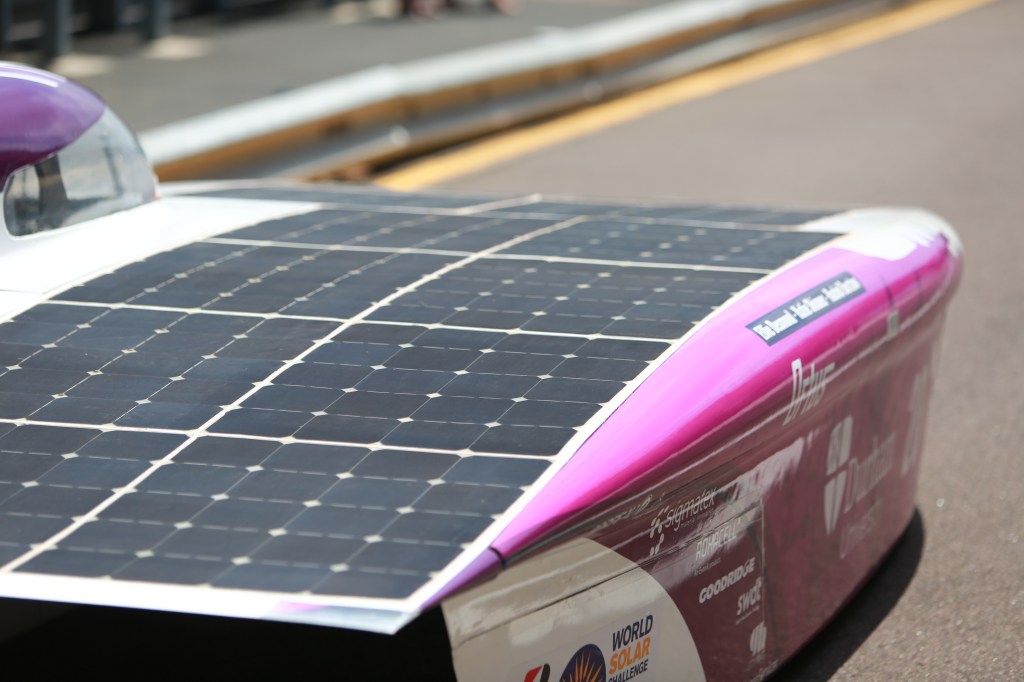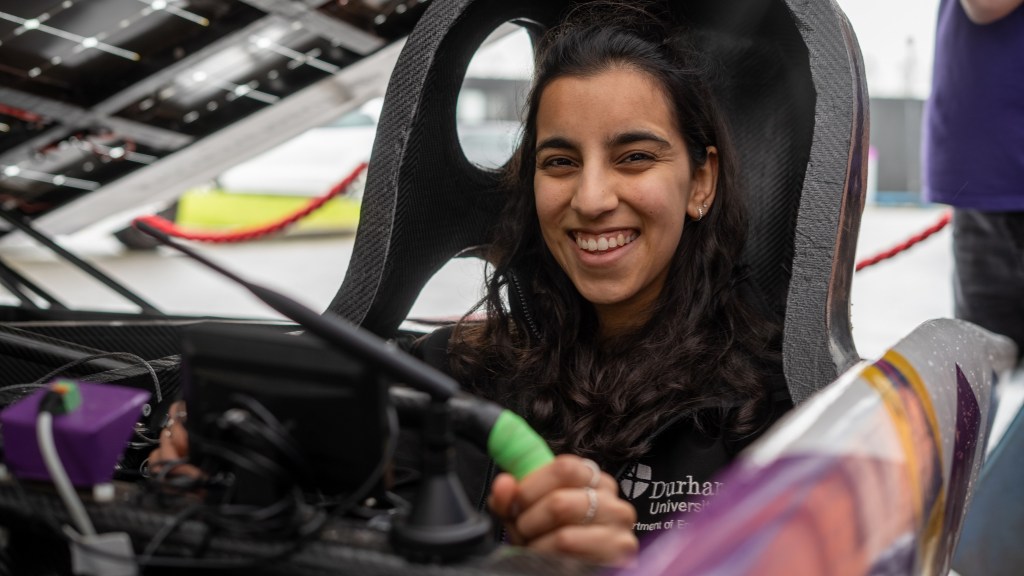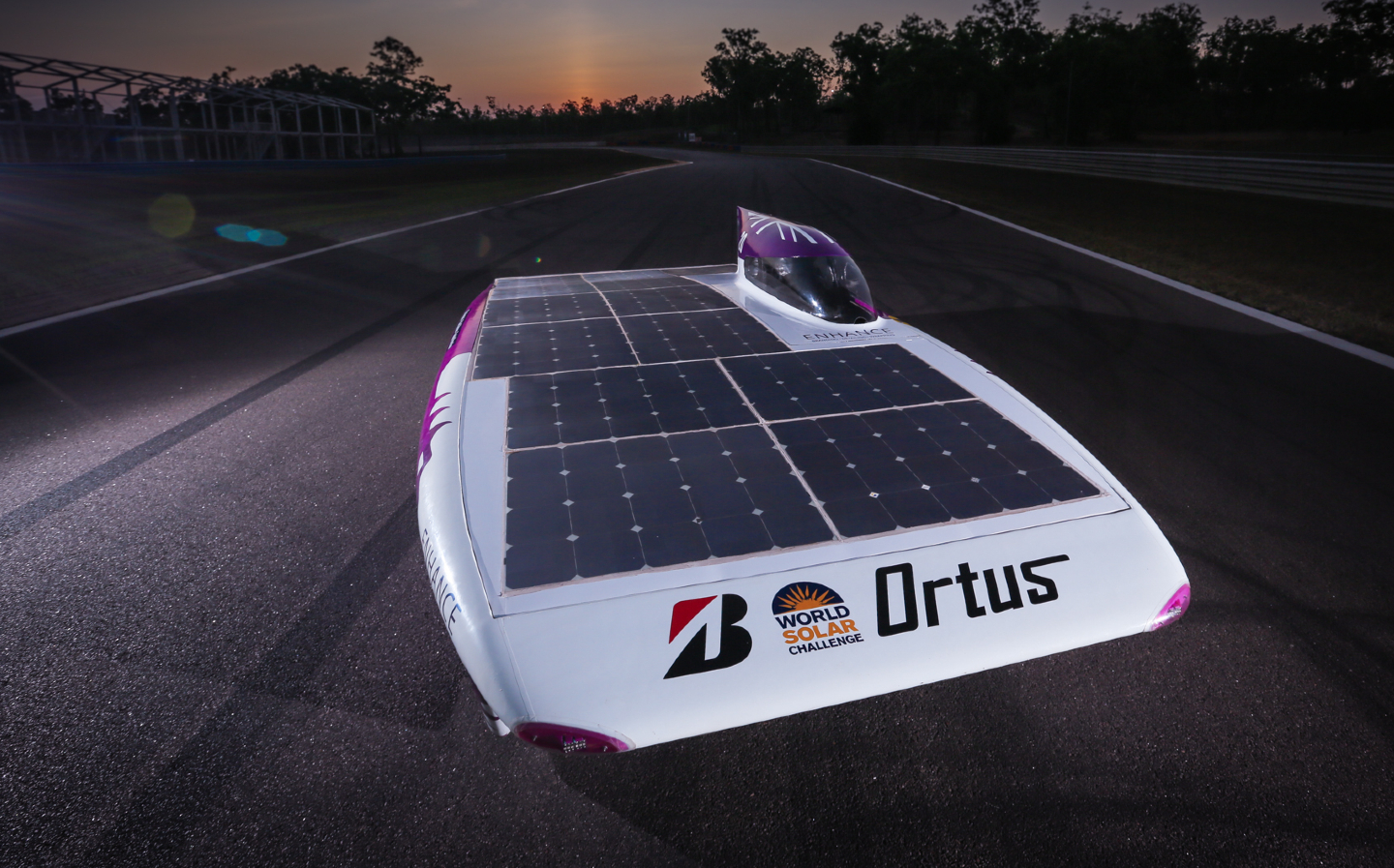Durham solar car team to take part in 24-hour race with smart tyres and night-driving solution
24 Hours of The Sun
Most people will have noticed that the sun goes down at night but that hasn’t stopped a 24-hour solar car endurance race from being established, and now a team from Durham University is aiming for glory in the Belgian event.
The team of students are fresh from taking part in the Bridgestone World Solar Challenge in Australia but will be fielding an all-new model for the 24-hour race at Circuit Zolder.
The Ortus-T, which is expected to reach speeds of 37mph, is similar in length to a standard compact car, such as a Renault Clio or Dacia Sandero, but much lower slung and stretched widthways (4m x 2m) to enable the maximum number of solar panels to be integrated into the roof. It also has four wheels, as opposed to the three that were fitted to the DUSC2023 vehicle the team used to compete in Australia.

The new car’s advanced construction involves Kevlar and carbon fibre to maximise strength and lightness, and it will be fitted with custom Bridgestone tyres featuring Enliten technology, which comprise 63 per cent recycled and renewable materials and have a low rolling resistance for maximum efficiency.
Because the teams in the iLumen European Solar Challenge (iESC) will be driving through the night, the Ortus-T features batteries to store energy for deployment when the sun sets. Teams will be allowed a maximum of two stops to recharge, though the Durham car should be able to run for a significant amount of time before doing so.
“The iESC is going to present a new set of challenges,” said Vedika Bedi, Durham University solar car team principal, “an obvious one being that there won’t be as much sun in Belgium, but we’ve incorporated 20kg of batteries which will power the car at cruising speed for four hours and we’re confident of another good result.

“We’ve carried out some track tests recently and have more in the pipeline which will allow us to train the drivers and the strategy team. Driving around track corners at speed will be a new experience, as our Australian adventure was along relatively straight roads.”
Bedi said the team’s goal is to finish in the top ten and maintain its reputation as a serious contender in solar car challenges, after finishing 11th out of 38 teams on the World Solar Challenge.
The iESC takes place on September 21 and 22 but before that, the Ortus-T will be on display at the 2024 Goodwood Festival of Speed in July.
Related articles
- If you were interested in Durham University’s solar-powered car for the iLumen European Solar Challenge, you might like to read about the Aptera solar-powered car that promises no more plugging in — for southern Californians, at least
- Dutch start-up Lightyear claims to have made the world’s first long-range solar-powered car
- In 2017, China built the world’s biggest floating solar plant in its drive to switch to electric cars
Latest articles
- Should I buy a diesel car in 2025?
- F1 2025 calendar and race reports: The new Formula One season as it happens
- Zeekr 7X AWD 2025 review: A fast, spacious and high tech premium SUV — but someone call the chassis chief
- Denza Z9GT 2025 review: Flawed but sleek 1,062bhp shooting brake from BYD’s luxury arm
- Extended test: 2024 Renault Scenic E-Tech review
- Best-selling cars 2025: The UK’s ten most popular models of the year so far
- Audi A6 Avant 2025 review: Trusty executive estate ticks expected boxes, and there’s still a diesel option
- Keir Starmer eases pressure on carmakers to sell EVs in response to ‘global economic headwinds’
- Ferrari 12Cilindri Spider review: Heady blend of traditional and futuristic becomes even more intoxicating after lid is removed














